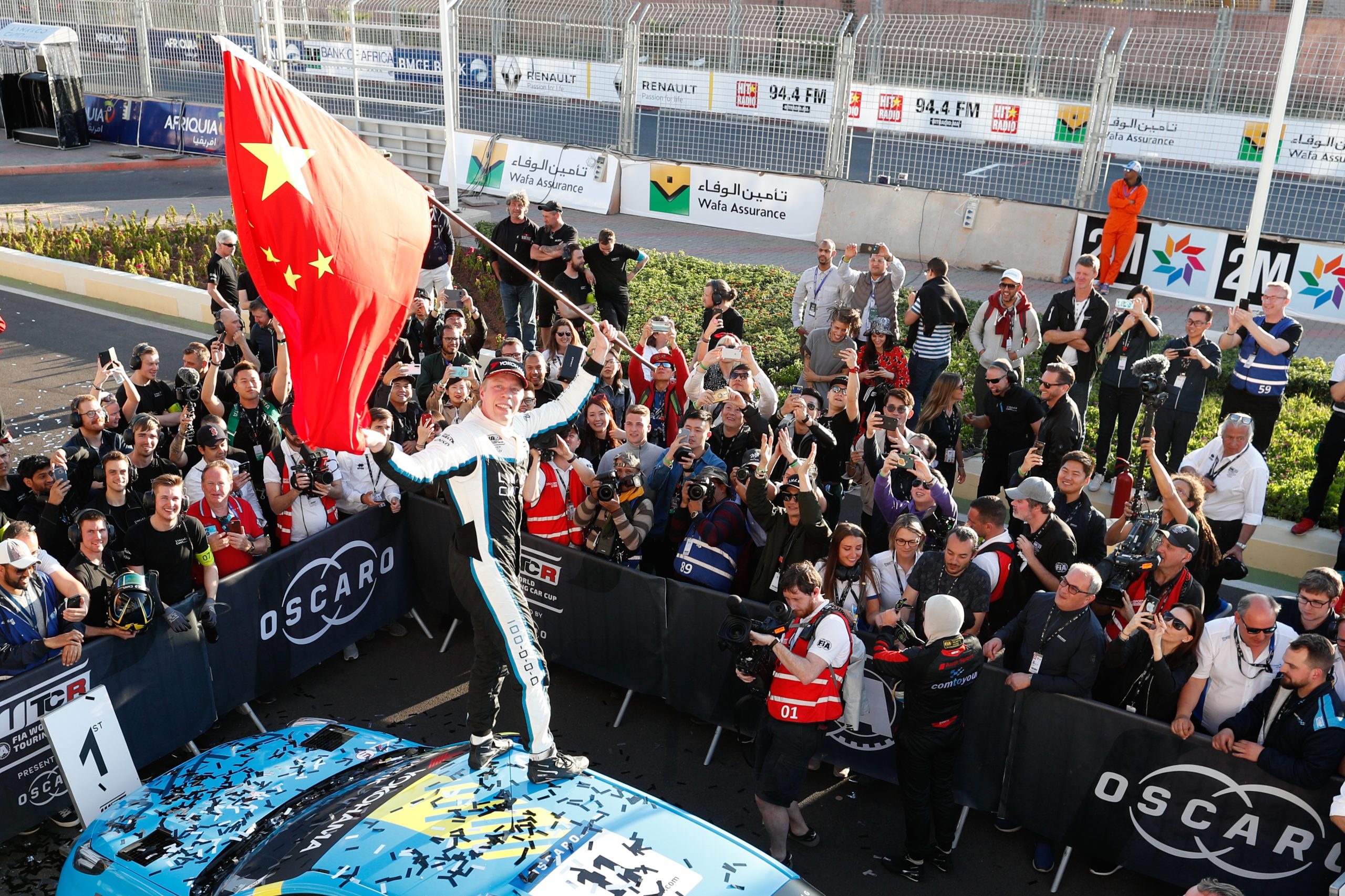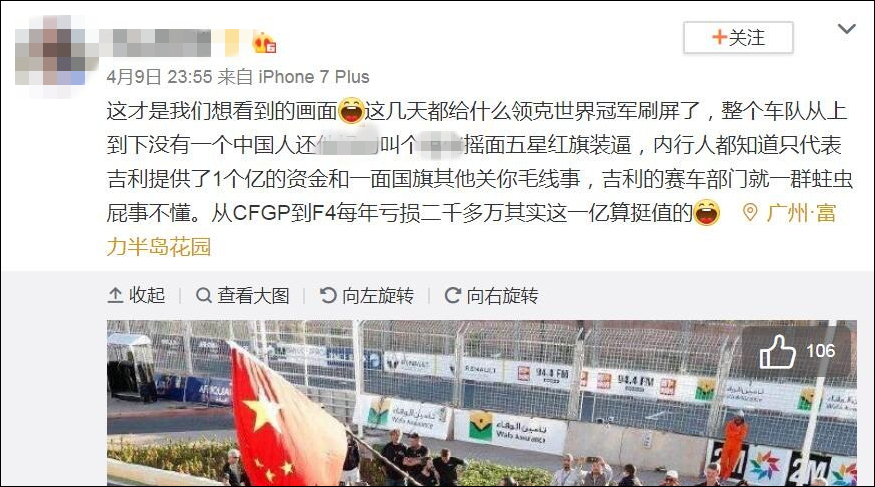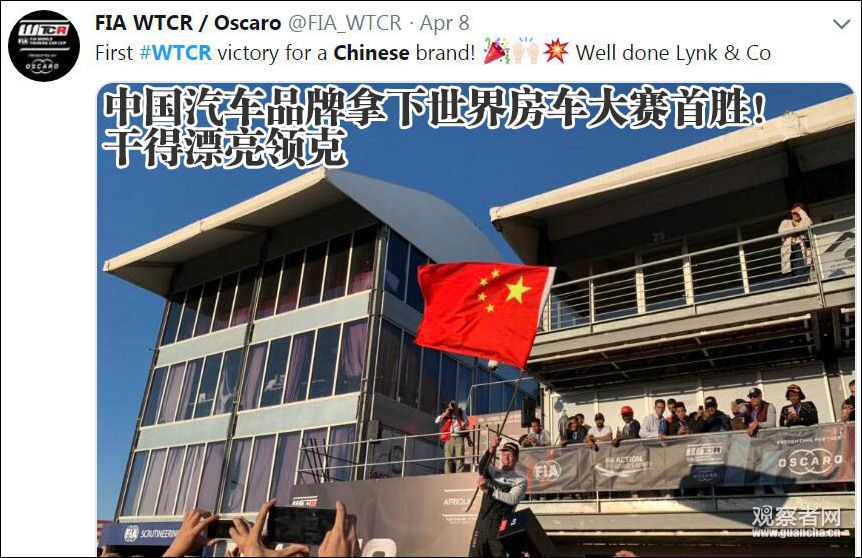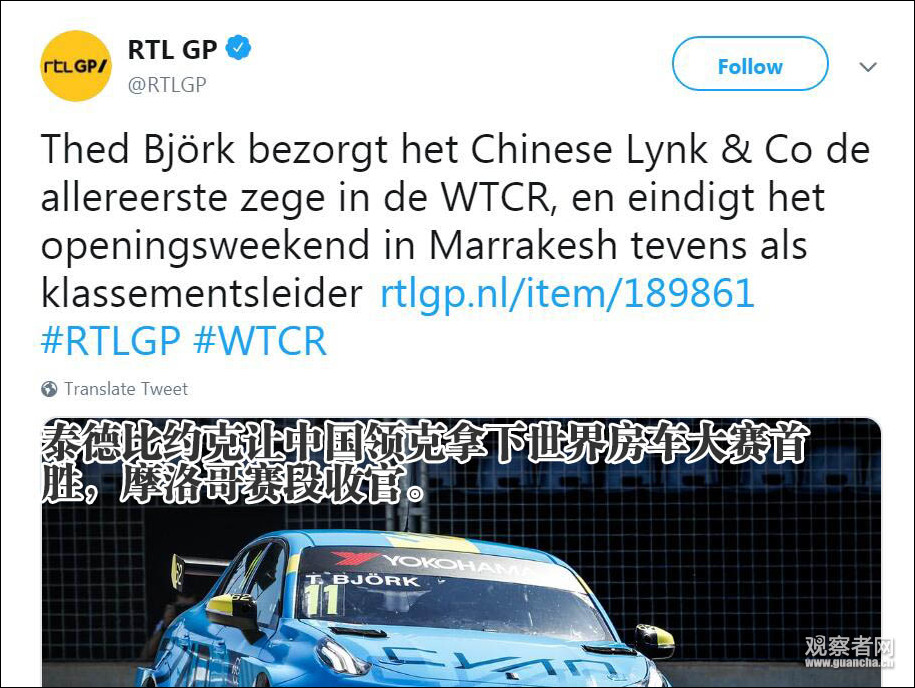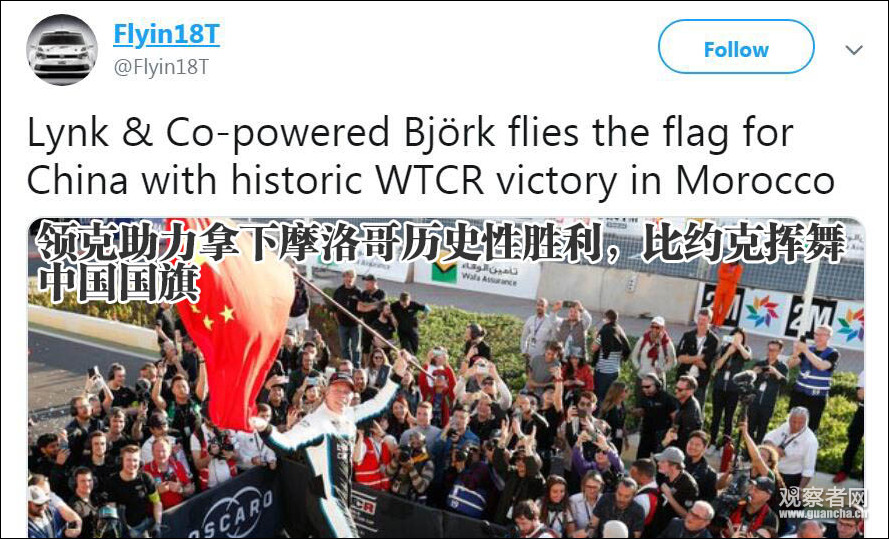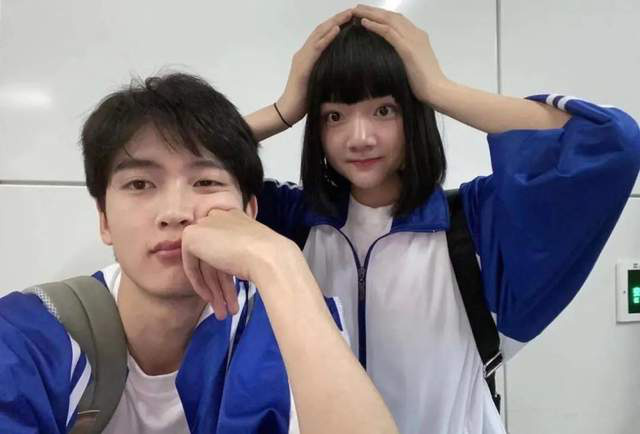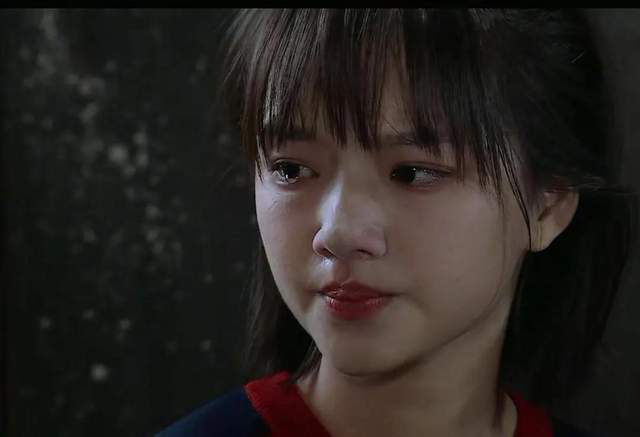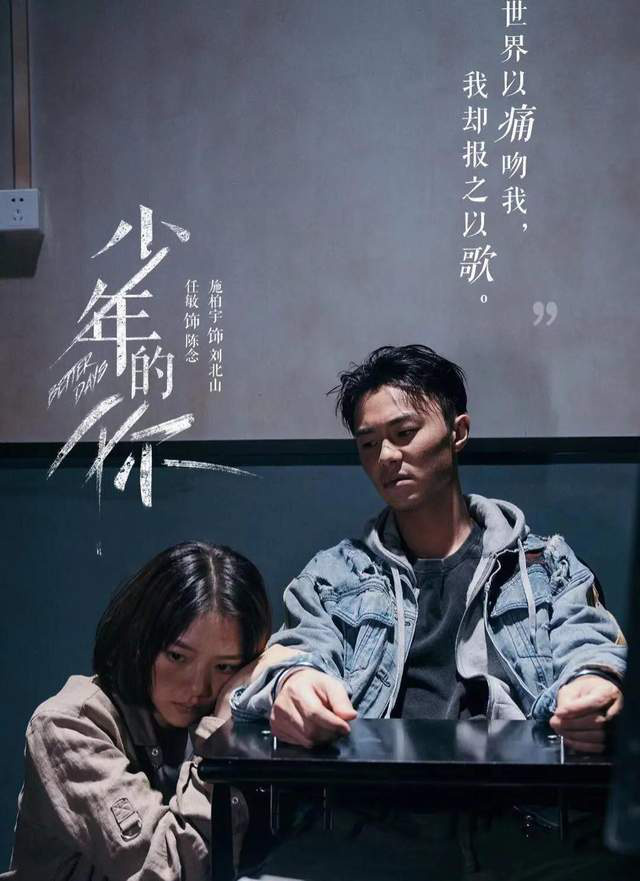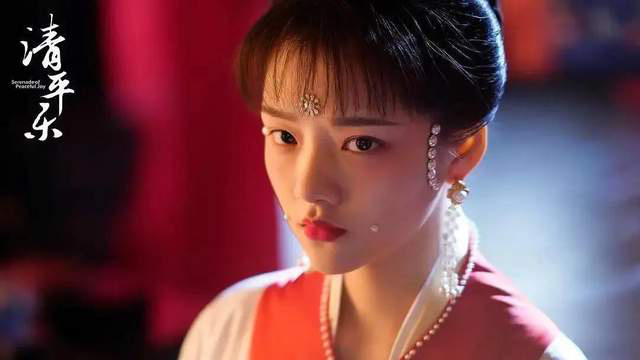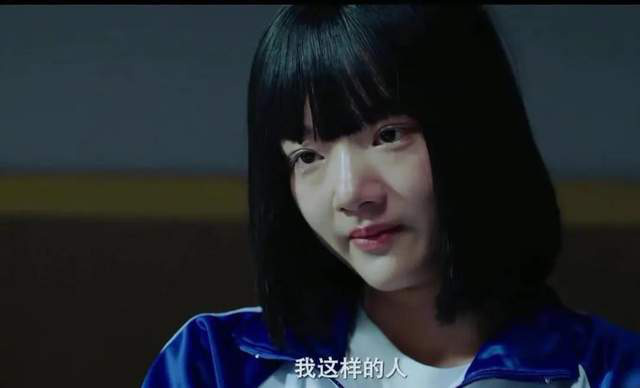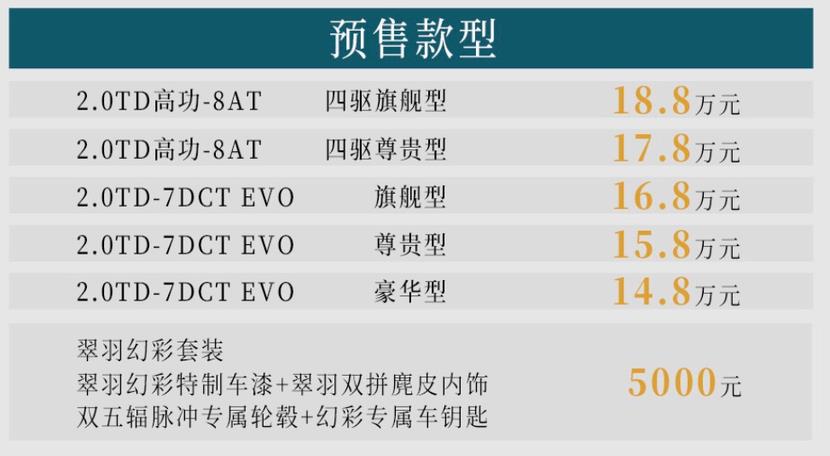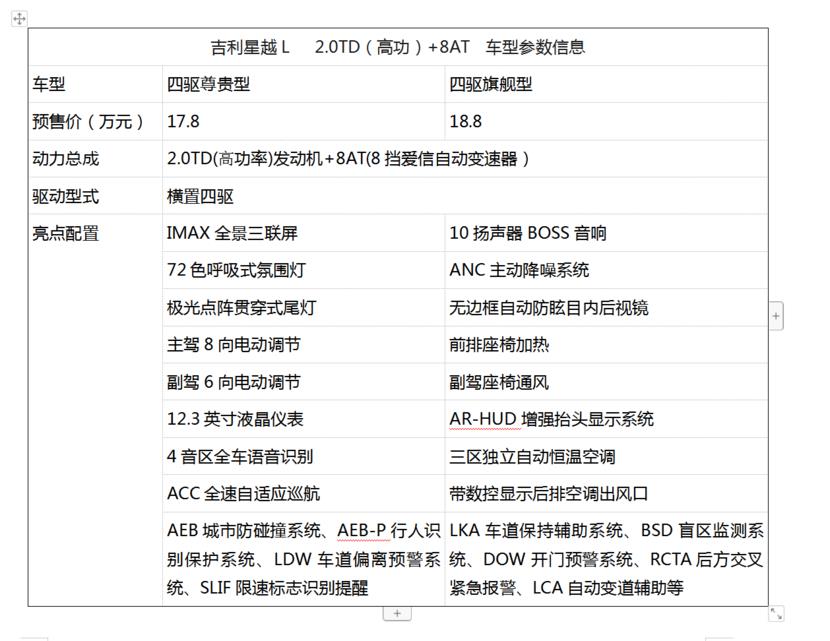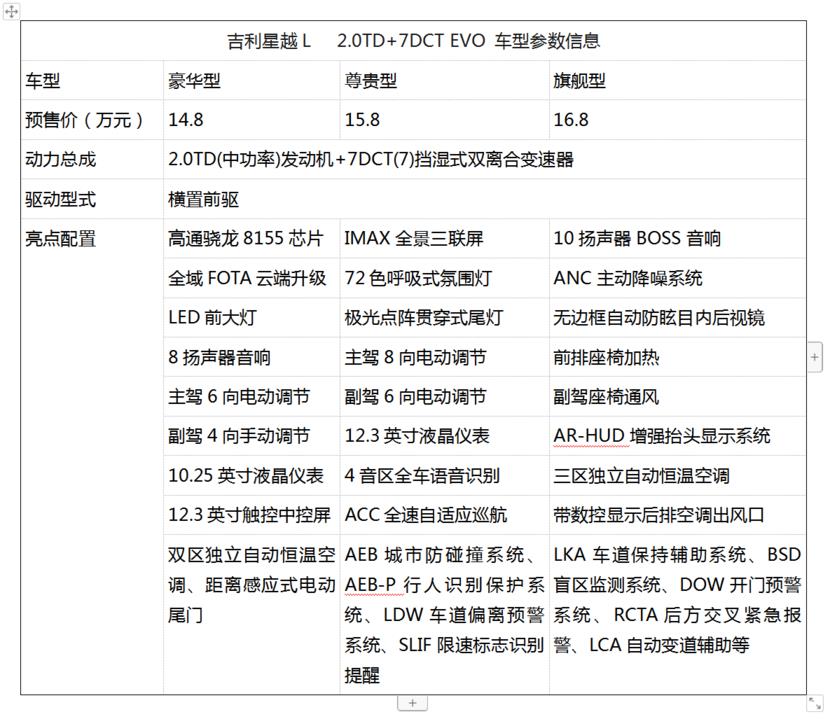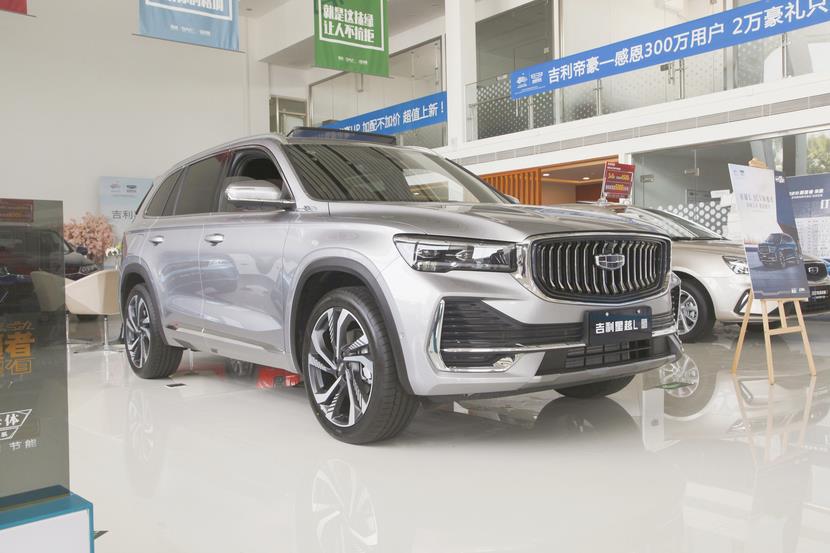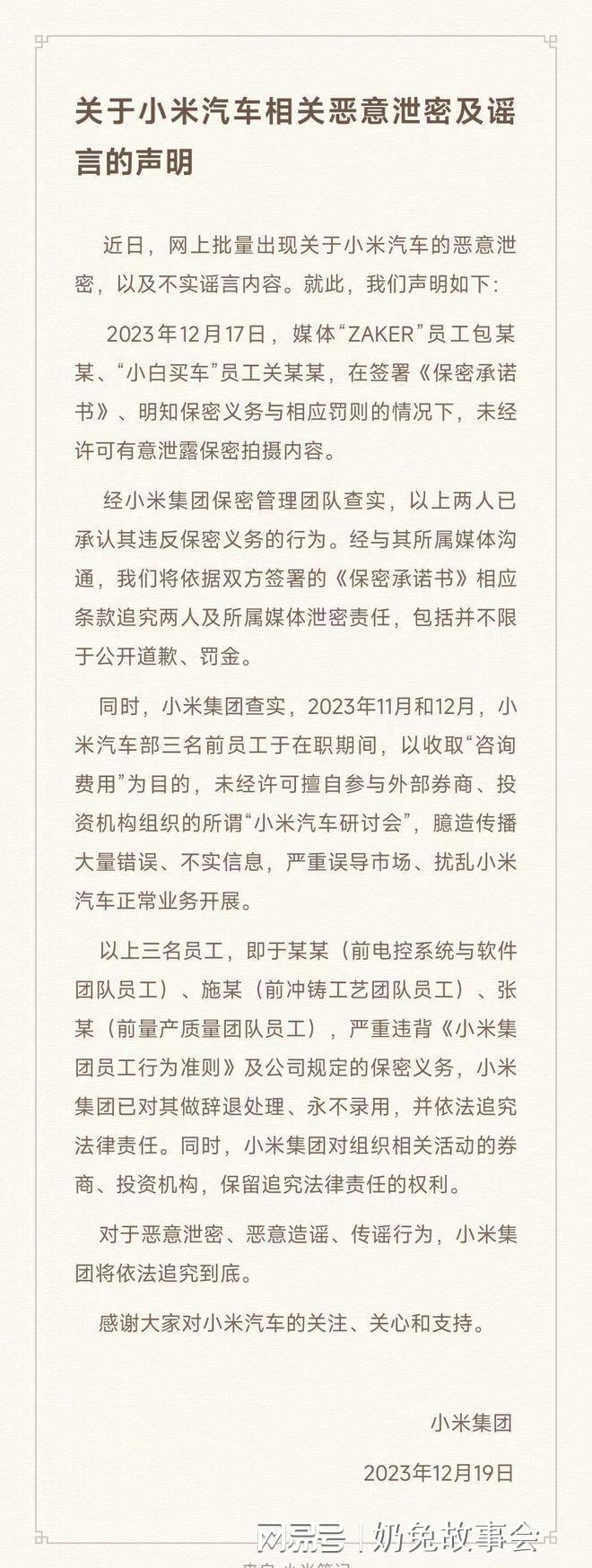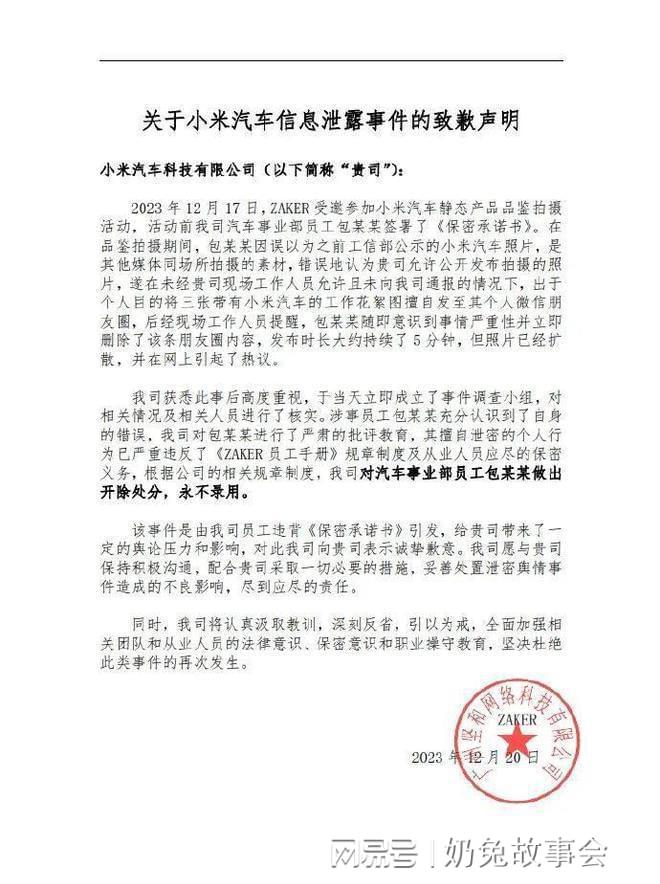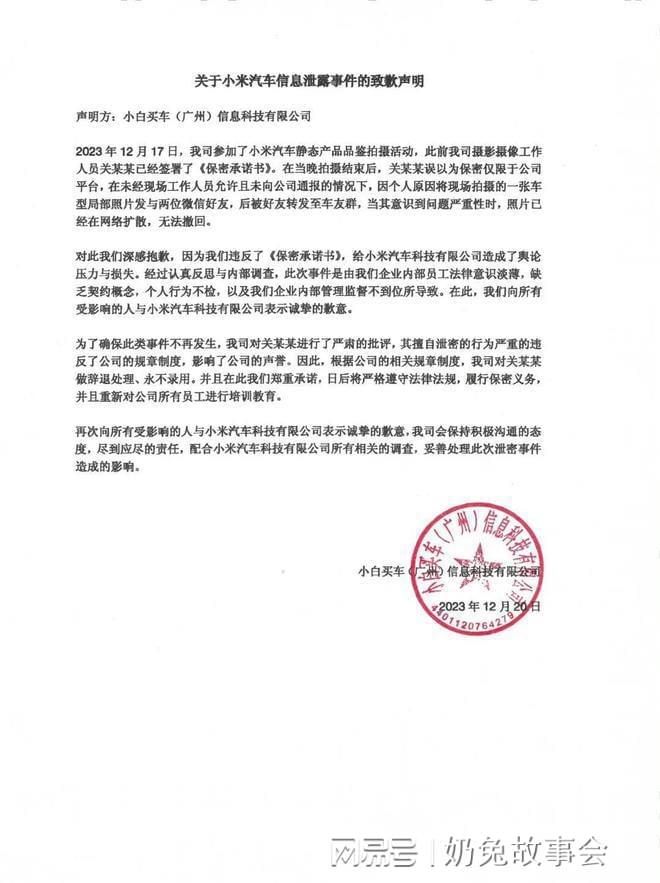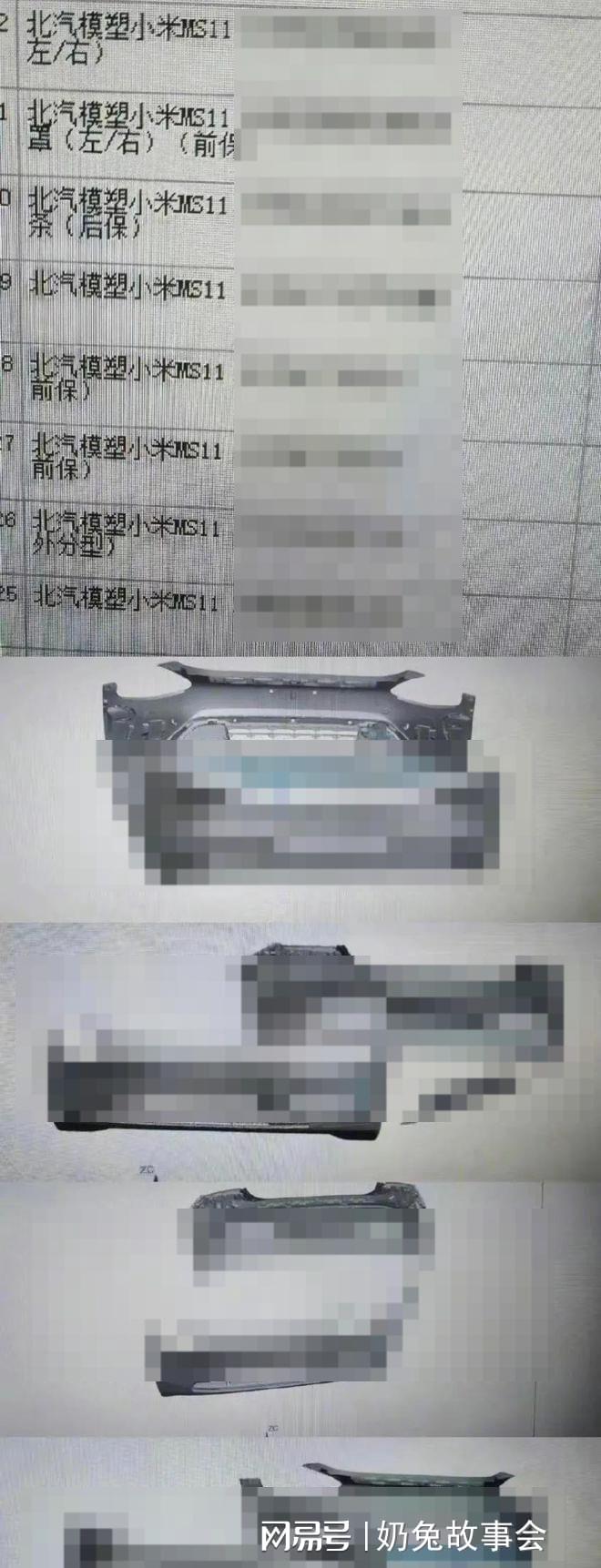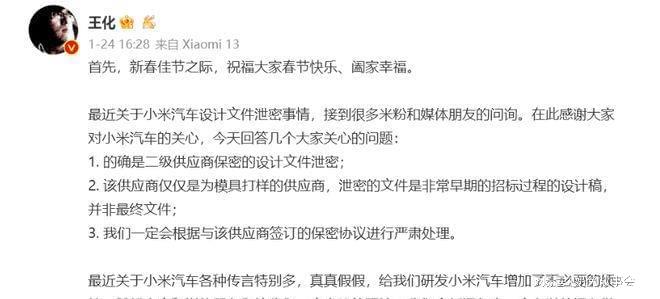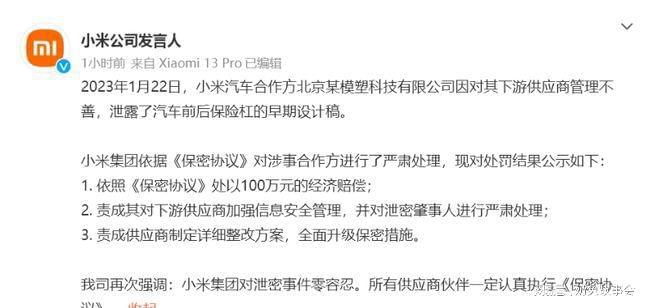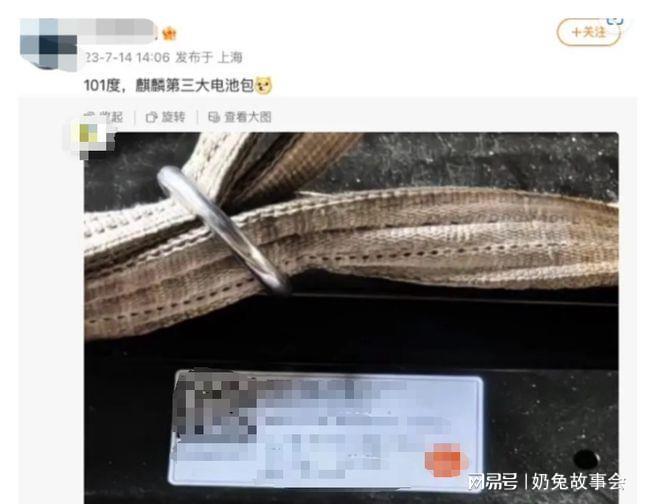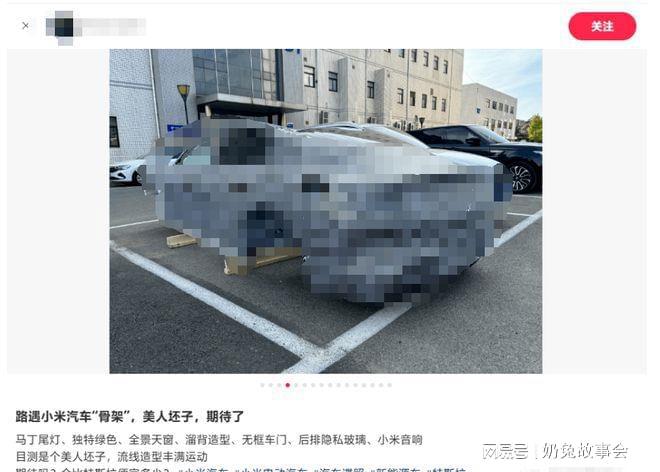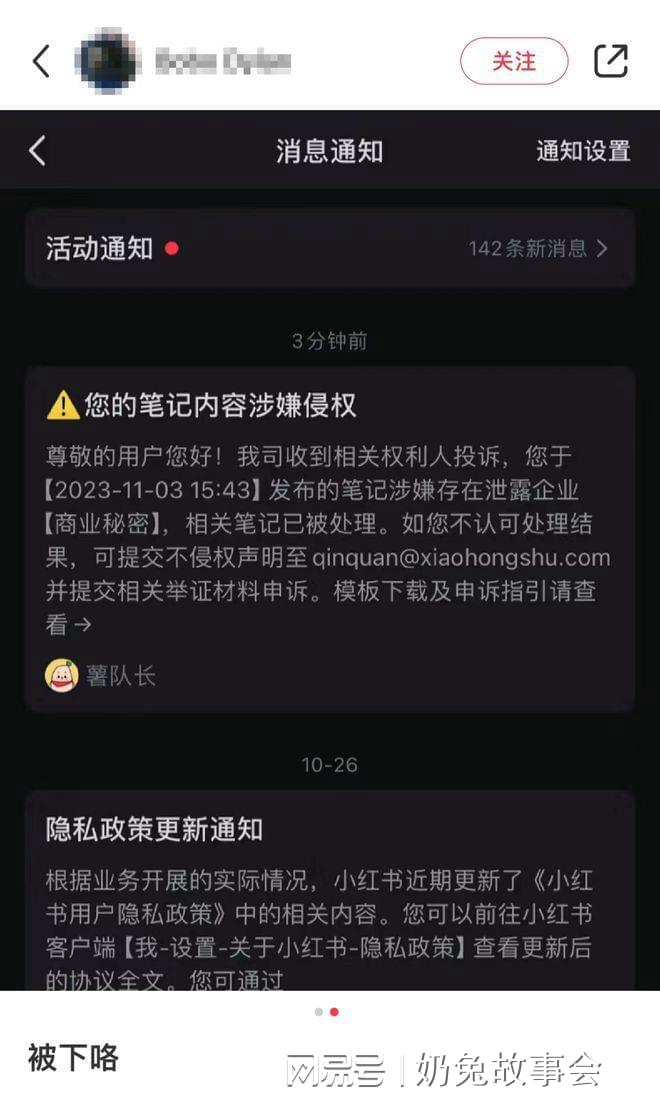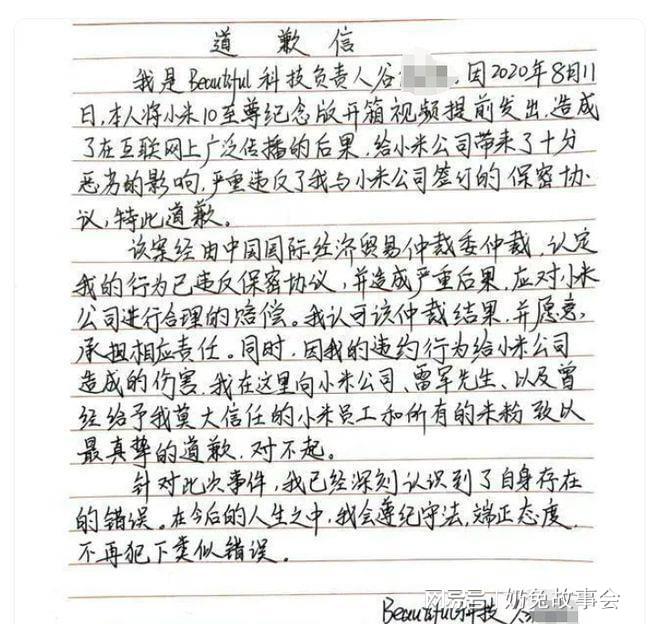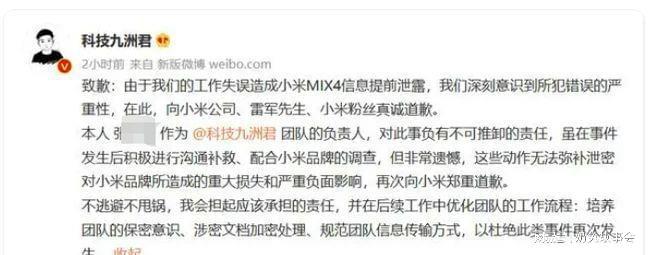Live broadcast with goods is very hot.
To what extent is the fire? Weibo has an anchor hot search every few days, old and new stars are competing to take the stage, and CEOs of major companies are going into battle …
At present, "live broadcast with goods" is an unshirkable outlet, which also plays a certain role in helping the economy. However, under the brutal growth and rapid expansion, there have also been many chaos in the industry.
After "618", major e-commerce platforms set a new sales record. However, the "618" Consumer Rights Protection Public Opinion Analysis Report released by China Consumers Association on June 30 showed that consumers still have many slots in the shopping experience of live broadcast with goods.
On June 30th, CCTV Finance’s "Economic Information Network" exposed the data chaos in the live broadcast: it can be swiped at any time and with any number of viewers, and there can also be real-life interaction, and the number of viewers will be increased by 20,000 plus 15 real-life interactions, which only takes 53 yuan …
Previously, China Advertising Association had issued the Code of Conduct for Webcast Marketing. This is the first special regulation on live webcast marketing activities in China, which was officially implemented on July 1.
What stage has the live delivery developed to now? What needs to be regulated in the "new economy" industry? What is the future development direction? Let’s analyze them one by one.
In 2019, it was called the first year of live e-commerce, and all major platforms entered the game one after another, speculating live stream economy; In 2020, affected by the epidemic, in order to alleviate the development crisis of entity enterprises, expand brand influence and market share, national policy guidance and traffic distribution of major platforms will promote live broadcast to empower the real economy. At that time, the development speed of live stream economy was pulled to a higher level.
"2020 Taobao Live New Economic Report" shows that in 2019, the annual GMV (total turnover) of 177 anchors exceeded 100 million. Since 2020, more than 100 occupations have moved to Taobao Live Studio, and a large number of talents and businesses have entered the venue. The number of MCN institutions related to Taobao Live Ecology has exceeded 1,000 …
This is just a corner of the platform of live broadcast with goods. Besides Taobao live broadcast, there are more "contestants" on platforms such as Aauto Quicker, Tik Tok and Tencent live broadcast.
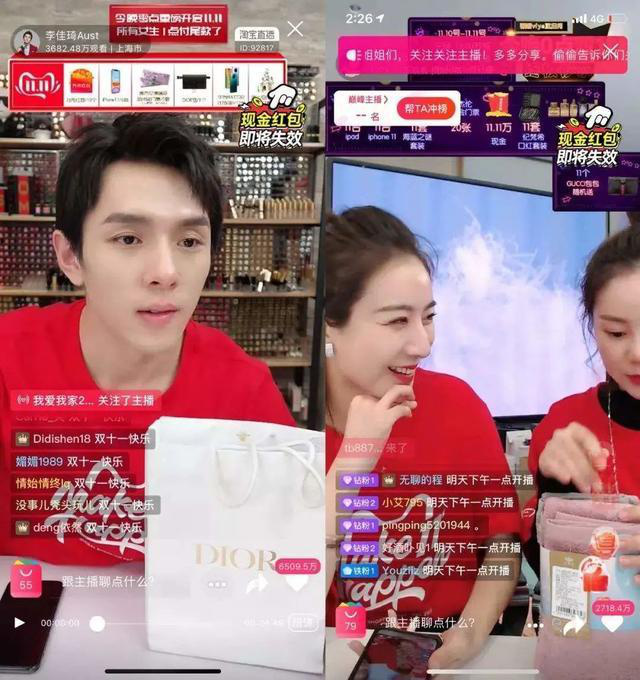
According to the data of CITIC Securities, the industry scale of e-commerce live broadcast in 2019 has exceeded 300 billion yuan, and it is expected to exceed the trillion scale in 2020."Live broadcast with goods" has become a unique consumption scene in China.
According to incomplete statistics, during the "618" e-commerce promotion this year, more than 300 stars collectively went live on Taobao. Different from amateur anchors, stars have natural traffic advantages and personal appeal, and every move in the live broadcast room can cause heated discussion.
Actor Tamia Liu opened the first show of Taobao live broadcast with goods, with a total transaction volume of nearly 150 million in 4 hours; Wang Han, the host, won a sales myth of 156 million yuan when she first aired … The offline content was blocked, all walks of life moved to "online", and the stars "incarnated" as anchors, which was also due to market demand to some extent. On the one hand, as the live broadcast gradually forms a national trend, stars with their own traffic should "keep pace with the times"; On the other hand, this year’s film and television industry has been hit hard, and the live broadcast has opened up a way for the stars who are "waiting for work" to make a living.
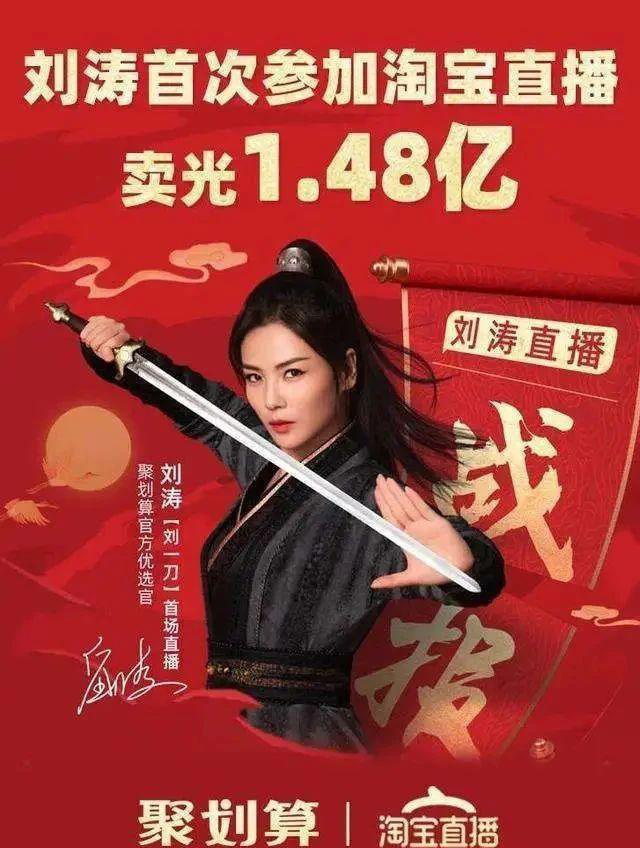
This year, live broadcast with goods has also "ignited" the enthusiasm of radio and television media, and various radio and television groups have also settled in Tik Tok, Aauto Quicker and other short video platforms for certification, broadening the distribution channels of resources and making the content reach more users. At the same time, radio and television media also explore live broadcast with goods through their own brand programs, and the program integration of "variety+live broadcast" has been widely tested.
As a new business form, live broadcast with goods is indeed helpful for economic recovery, but in the early stage of the business and the lack of supervision, some live broadcast chaos also arises from it.
This almost nationwide live broadcast with goods is unprecedented.
Accompanied by "unprecedented" and surprising sales data. If the data of live broadcast with goods in the previous two years were that thousands of lipsticks were sold out in five minutes and several cars were sold in one day, the current data are that millions were sold out in one minute, tens of millions of goods were brought in one hour, and hundreds of millions of goods were brought in the whole live broadcast … In layman’s terms, a single live broadcast does not cost billions, and people are embarrassed to tell others that they have made a live broadcast.

Many live broadcasts have goods ranging from hundreds of millions to billions. It is important to know that in the GDP data of provinces across the country in 2019, the annual GDP of the provinces ranked in the lower position is only a few hundred billion. Compared with the live broadcast data, it seems that the live broadcast can easily get GDP.
Is this possible? Of course not.
In fact, the live broadcast of goods standing on the tuyere is not as beautiful as it seems, and many people who are new to this field can’t help but step on the pit and pay the first tuition fee.
> > > The first is to brush traffic and sales data.
When the audience’s attention becomes scarce resources and data traffic becomes the standard to measure the popularity and ability of anchors, it becomes a hidden rule to brush data and sales.
How much water is there in a live broadcast with 100,000+viewers?
"There are less than 100 real people." In the entertainment front page (ID: Wenyutouban) survey, the technical operator of a live broadcast platform gave such a figure, and his work KPI was to "optimize" the number of people in the live broadcast room.
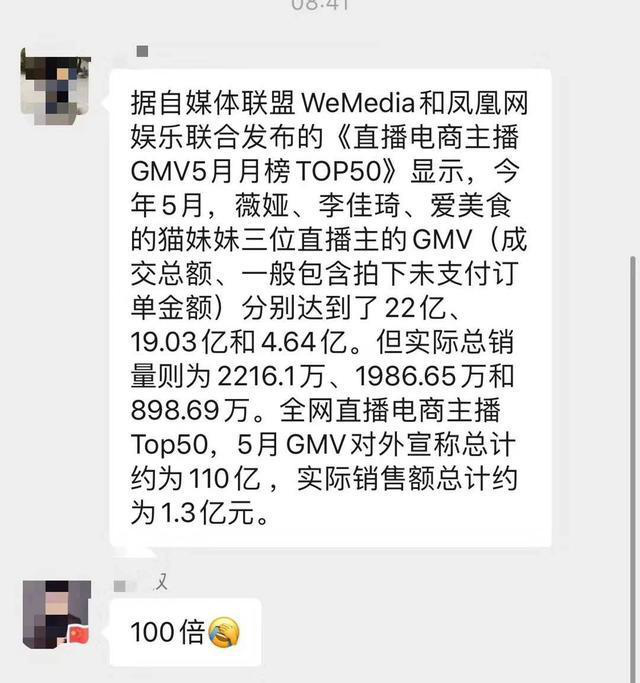
Image source: Zinc Finance
In fact, live brush data is not a new product. As early as 2016, in order to improve their commercial value, many anchors made the live data look good by brushing attention, brushing barrage and brushing water. Now, the data of live broadcast with goods brush is mainly divided intoBrush popularity and sales dataTwo kinds.
Brush popularity, that is, brush the number of viewers. High popularity not only improves the conversion rate of the live broadcast room, but also creates the illusion of excitement. Spend as little as a few tens of dollars, and as much as a few hundred dollars, you can buy hundreds to tens of thousands of machine powder viewing data, and there are businesses that specialize in organizing live fans to brush data, and get corresponding rewards according to the time when fans enter the live broadcast room to watch …
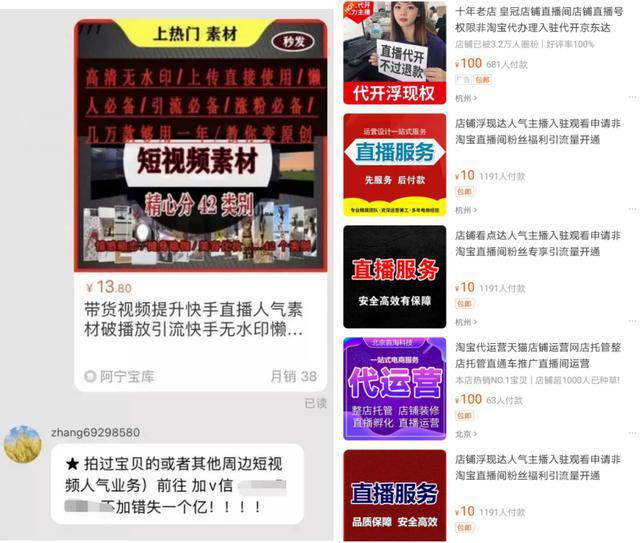
Brushing sales data is more complicated than brushing popularity.
Before introducing it formally, let’s talk about ——MCN (Multi-channel Network Service), the key media for data brushing. To put it simply, MCN connects content production and advertising. It can incubate anchors by itself, or support and incorporate other anchors, and then package them in a unified way to connect with merchants.
Under normal circumstances, merchants looking for MCN institutions and online celebrity and celebrities to bring goods live need to pay thousands to hundreds of thousands of pit fees to enter the live broadcast room. The so-called pit fee refers to the occupancy fee paid by the merchant to the live broadcast partner, which is equivalent to the commodity shelf fee of the offline store, and it is a fee that accounts for a high proportion of the merchant’s investment in the process of live broadcast.
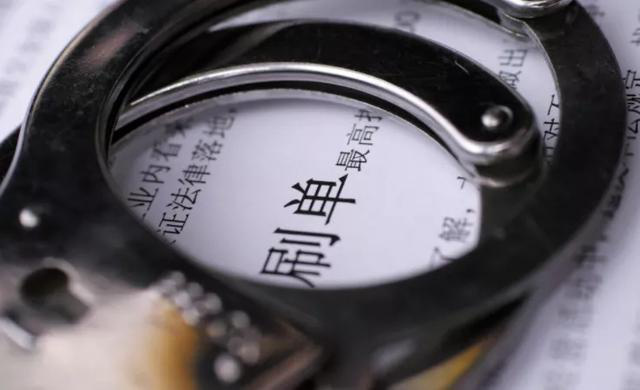
According to industry insiders, the pit fees of different anchors vary greatly, ranging from pure commission to several hundred yuan to several hundred thousand yuan. A MCN organization revealed that the pit fees of first-line anchors such as Simba, Li Jiaqi and Viya are between 80,000 and 300,000 yuan; The second-line anchor pit fee such as Sydney is 30,000-100,000 yuan; The pit fee of the third-line anchor is less than 30 thousand yuan; Some smaller anchor pit fees may be only 2,000-3,000 yuan, and some also use the method of pure commission, that is, they only take sales commission without pit fees.
In fact, there is no uniform charging standard for the pit fees. Even for the same anchor, the fluctuation space of the pit fees is very large. If it is not an insider or has cooperated with it, it is difficult for the outside world to know its accurate charging amount.
The charging standard of MCN = pit parking fee (service fee)+20% withdrawal, and the assessment standard ROI= (income-cost)/investment amount, which can be understood as guaranteed sales. If it is not possible, the pit parking fee will be refunded.
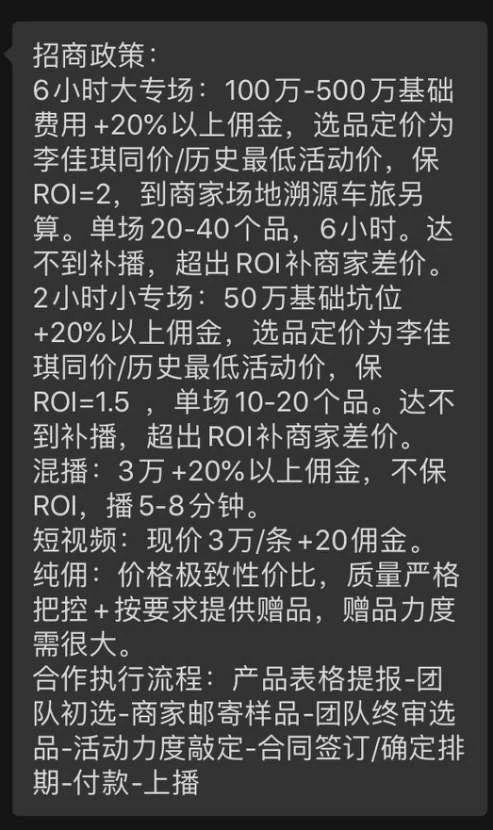
A MCN quotation, the picture comes from the network.
For example, the jargon of "guarantee ROI=2" means that when the merchants invest 1 million yuan, MCN institutions should guarantee 2 million sales. The safest way to ensure sales is to brush sales. Generally, the expenses required for brush sales are shared by MCN institutions and KOL, and the net profit after settlement is distributed by both parties in proportion. On the one hand, it caters to the needs of merchants, on the other hand, it also makes beautiful data to further "accumulate" its own "commercial value".
After a live broadcast, the merchants achieved sales, and the MCN institutions and KOL anchors and stars got the commission after brushing. Even if the price of brushing sales was deducted, the MCN institutions did not lose money, and the merchants were willing to do it.

Is this the end of a live broadcast? Of course not. 30-50% of the goods bought by the brushing platform are refunded, and the real results are often seen only one week after the live broadcast, and the effect is far from the original budget revenue. This is still in the case of ROI guarantee, and some merchants choose live broadcast with goods that cannot be guaranteed. As for whether the goods can be sold or sold well, the anchor is not at the bottom.
Outside the MCN organization, many businesses turn their attention to more influential star artists. But in fact, whether it’s Taobao, Aauto Quicker or Tik Tok,Not all the stars’ achievements in bringing goods are so glamorous..
For example, when an actress brings goods in the live broadcast room in Tik Tok, the first show pit fee is as high as 100,000-250,000, and the live broadcast room traffic package is 150,000, but the single product sales are less than 30,000; The final result of an actress’s whole debut is only 2 million+:some brands spend 100,000 yuan on pit fees and 10% commission to invite the anchor to bring the goods, but the final sales amount is less than 60,000 yuan …
When the live broadcast was triumphant,False propaganda, billing, random pit fees and high return rate are common problems, and a gray industrial chain is buried in it..
"One operation is as fierce as a tiger, and it’s twenty-five cents at hand."As a result of brushing the sales volume, businesses will undoubtedly spend money and get their own wool. What’s more, they will lose a lot. Interestingly, how fake the live broadcast data is, most merchants know it clearly, but obviously they don’t want to debunk the fact that the industry is widespread. This game of "pain and happiness" by brand owners has also turned many high sales into a show of losing money and earning money.
And those merchants who have a little knowledge of the rules of the game become the "cheating" objects of MCN and the anchor. Some MCN harvest small businesses by selling low-priced pits and guaranteeing quantity agreements, and refuse to refund pit fees when they fail to reach the agreed sales volume, specifically "killing young".
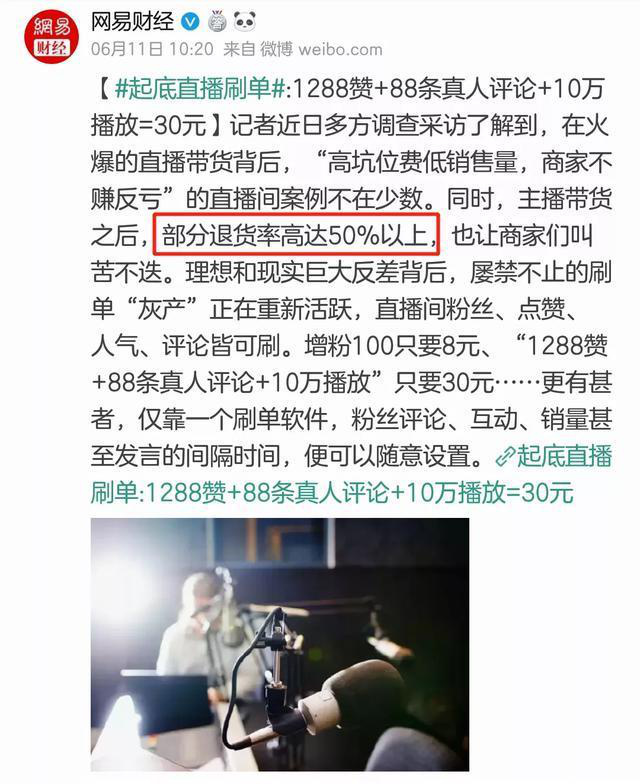
For the ills of brushing, major platforms have successively implemented corresponding measures. For example, Taobao Live said that some merchants on the platform have sold "brushing robots" and have already carried out several rounds of attacks.
In 2019, Tik Tok also launched the "Woodpecker 2019" special campaign to crack down on the cheating of black products on the platform. As of December 31, 2019, the campaign banned 2.03 million illegal Tik Tok accounts suspected of cheating on brushing, and reported 113 black websites suspected of brushing to relevant departments.
> > > Secondly, there are many incidents that damage consumers’ rights and interests, such as false propaganda of goods and quality "rollover".
On March 31st, the Survey Report on Consumer Satisfaction Reproduction of Live E-commerce Shopping published by China Consumers Association showed that in the survey of 5,333 consumer samples from 12 live e-commerce platforms, the link with the lowest consumer satisfaction was the publicity link; In the spit of live broadcast with goods, the problem of exaggeration is more prominent.
This year, Luo Yonghao, a new anchor, broadcast five "rollover" events in seven live broadcasts, with a rollover rate as high as 71.4%. Not long ago, Luo Yonghao brought goods for a flower brand. Many consumers found that "the goods were not on the right board" after receiving the goods. As a remedy, "Lao Luo" apologized to the consumers, publicized the "angry" merchants, and finally came up with a compensation plan.
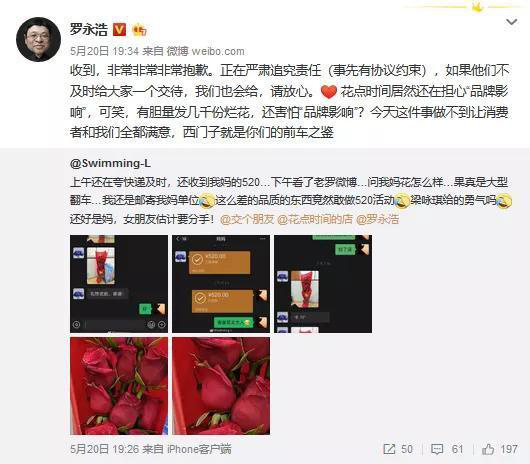
Li Jiaqi’s "non-stick pot" incident caused him a credibility crisis, and he had to take the blame himself.
It is not uncommon for the live broadcast to "roll over" due to product quality problems. How to ensure the quality of goods when bringing goods requires not only the self-examination and self-correction of the merchants, but also the anchor to have sufficient professional quality.
In fact, in Li Jiaqi, Luo Yonghao and other high-profile head anchor live broadcast rooms, once the products with goods have problems, under the supervision of online public opinion, after-sales service is relatively guaranteed. However, many consumers have reported that in the live broadcast rooms of small and medium-sized anchors on various platforms, problems such as merchants refusing to deliver goods after buying low-priced goods and not supporting 7-day unreasonable returns frequently appear.
In addition, nearly 40% of consumers have reported many problems after purchasing goods through live broadcast, but anchors, merchants and live broadcast platforms often shirk their responsibilities, and there is no way to protect their legitimate rights and interests.

The quality of anchors is mixed, and there are no fewer problems such as false propaganda and product quality.
Therefore, when the live e-commerce is faced with order norms, "people" will become the trump card of the future platform. In the CCTV program Dialogue not long ago, the host once asked Weiya and Li Jiaqi a question: "What exactly is the quality that an anchor must have?" Li Jiaqi and Viya agree that the most important thing for an anchor is.major.
Encouraged by the policy, the "gold rush" of live broadcast with goods continues. How to realize the content in the end requires professionals with expressive ability, understanding of marketing and products, so that they can fully and maximally display products to the user groups.
At present, under the background of the detailed supervision of live broadcast, merchants and live broadcast platforms are increasingly inclined to cooperate with mainstream media to obtain the help of "trust value". At this time, the radio and television media should be more cautious when entering the market. When choosing partners that meet their own positioning, we should also pay attention to product quality and after-sales guarantee in live delivery, so that the delivery can better help the economy.
The "Report on Public Opinion Analysis of Consumer Rights Protection in June 18th" issued by China Consumers Association shows that "live broadcast with goods" is one of the main dimensions of negative information about consumer rights protection during this year’s "June 18th" promotion activities. During the monitoring period of the report, a total of 112,384 pieces of negative information about "live broadcast with goods" were collected, with an average of about 5,600 pieces per day, and the slots were mainly concentrated inSome anchors, especially "star anchors", are suspected of having illegal propaganda problems such as promoting the efficacy of products or using extreme words during the live broadcast; The product quality and goods are not right, and the platform anchor sells "three noes" products, counterfeit and shoddy goods, etc. to netizens; Live broadcast brush fan data, sales volume brush fraud "kill chicks"; After-sales service is difficult to guarantee..
The Code of Conduct for Webcast Marketing, which came into effect on July 1st, regulates the behaviors of merchants, anchors, platform operators, anchor service agencies and participating users in Webcast Marketing, and clearly states that anchors shall not make false propaganda on goods and services, deceive or mislead consumers, and shall not falsify data such as traffic in any form, and shall not cheat merchants’ commissions by means of false purchase and return afterwards.
According to Zhongxin. com, the Media Shopping Professional Committee of China Business Federation has also drafted the Basic Specification for Video Live Shopping Operation and Service and the Evaluation Guide for Online Shopping Molding Service System, which are expected to be released and implemented in July, and put forward requirements for employees, product quality, operation and management, service and supervision and management.
In the future, with the gradual implementation of supervision, problems such as low industry threshold, uneven quality of anchors, rampant false propaganda, proliferation of counterfeit products and difficulty in ensuring after-sales service will become the focus of industry norms, and live broadcast will bid farewell to barbaric growth and enter a new stage of development.
Helping the economy can’t be a bit false.
-END-
Rotating editor: Tong Tong
Author: Sifang
Editor: Online
Source: 36Kr, CBN, Zinc Finance, Consumer Z Era, etc.
(Some pictures are from the Internet)












